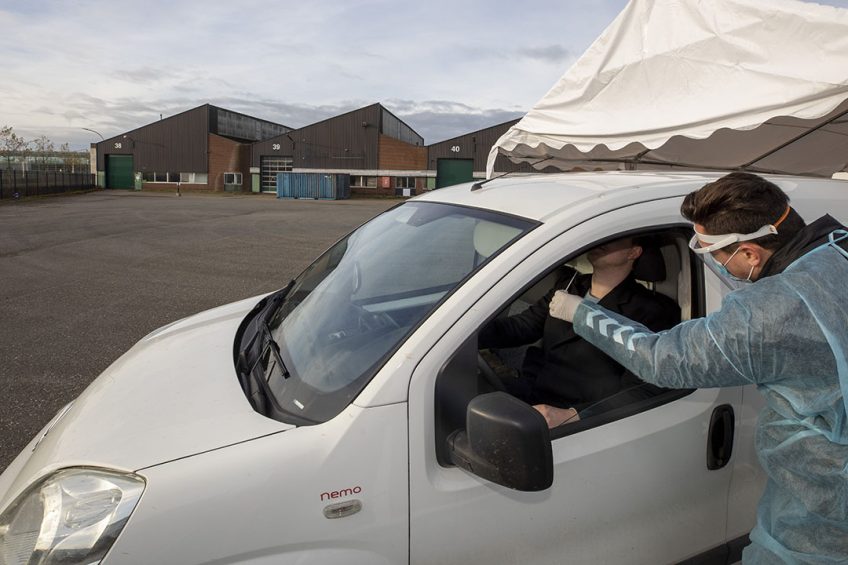Biosecurity: An Inconvenient Necessity

Measures taken to protect staff health because of Covid-19 should continue after the current pandemic ends.
Furthermore, staff-focused biosecurity programmes will help reduce both seasonal illnesses and disease introduction to flocks.
Travis Schaal, Director of Global Production at Hy-Line International, said the company had used its experience from the massive Avian Influenza epidemic in 2015 and other outbreaks to prepare for Covid-19.
Their preparation included:
- No visitors, auditors, rodent technicians, or third-party crews on farms or hatcheries.
- A limit on staff interaction (crews, barn workers, office staff and plant staff).
- An increase in communication to staff.
Renewed focus on worker health and safety
Dr Schaal said there had also been a renewed focus on worker health and safety with enhanced personal hygiene and workplace sanitation, with a focus on “touchpoints” and shared spaces (such as showers, door handles, breakrooms, and canteens) and mandatory use of masks.
AI prevention and innovative biosecurity measures
Lasers are being trialled on a Dutch free-range poultry farm to see if they can remove the threat of avian influenza contamination from wild birds.
Speaking at an International Egg Commission business webinar, Dr Schaal admitted that the US had faced unprecedented times with humans now a vector of disease that directly affects businesses, including travel suspensions and the closure of some processing plants. Yet, at the same time, hens continue to lay eggs. The combination of creating contingency plans for reduced staff levels and having to deal with moving birds, vaccinating, daily barn work, and the lockdown – which involved online home schooling for children and ongoing physical distancing – was hugely stressful.
During the webinar, he highlighted how Iowa’s cases had remained relatively stable until mid-October but had taken off since then, meaning the state’s hospital intensive care units (ICU) were now working at capacity with nearly 3,000 cases a day. While Covid-19 is not an avian disease, there is a poultry pathogen analogy in the form of infectious bronchitis virus, belonging to the Gammacoronavirus group. While not zoonotic, it is easily transmitted between chickens and requires a combination of live and killed vaccines to guarantee protection. Different strains do not provide cross-protection.
Covid-19: Impact on the global poultry sector
The coronavirus has had a huge impact on daily life from the man on the street to businesses, and the poultry sector, even more essential than ever, has not gone unscathed. Keep up-to-date.
Schaal added that society was learning from the primary poultry breeding sector’s compartmentalisation procedures in Brazil, the Netherlands, the UK, and the USA for protection against avian flu and virulent Newcastle Disease. This could be seen in professional sports leagues, which had taken the steps to contain players in a “bubble” with enhanced biosecurity and additional Covid-19 surveillance and testing requirements.
Inconvenient but needed
In conclusion, Dr Schaal stated that biosecurity was inconvenient but had to be addressed across the poultry industry. Hy-Line’s practice is based on 9 biosecurity principles that they highlight to keep disease at bay: isolate, control, eradicate, sanitise, vaccinate, monitor, audit, educate, and prepare.












